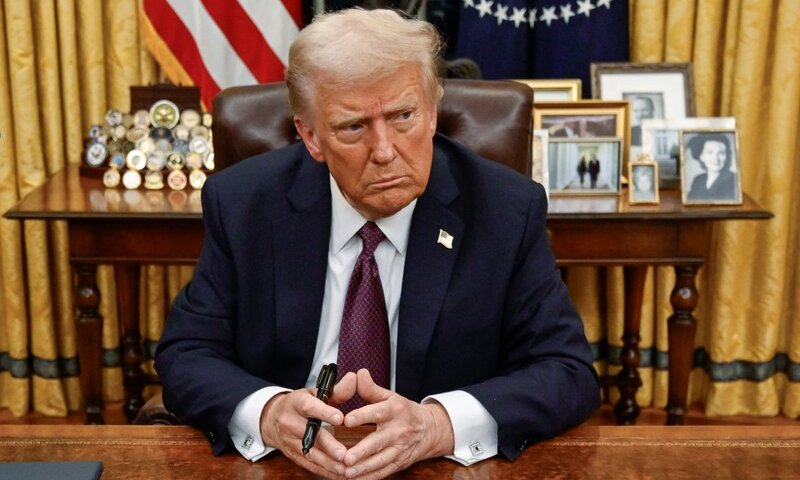The Trump administration has implemented a major and sudden policy change for the H-1B visa program, imposing a $100,000 USD payment requirement for new petitions filed after 12:01 AM Eastern Daylight Time on September 21, 2025. The new rule was enacted through a presidential proclamation signed on Friday, September 19, citing the need to address perceived systemic abuse of the program and protect American jobs.
The move has sent immediate ripples through the technology and financial sectors, which rely heavily on the H-1B program to hire specialized foreign workers. Major corporations have already begun advising employees on how to navigate the new policy landscape.
The proclamation, titled “Restriction on Entry of Certain Nonimmigrant Workers,” was issued under the authority of sections 212(f) and 215(a) of the Immigration and Nationality Act. According to guidance released by US Citizenship and Immigration Services (USCIS), the new fee applies prospectively to all H-1B petitions for specialty occupation workers submitted after the effective date.
Rather than preserve American jobs, the move actually encourages to move operations offshore where workers will not be subject to the confiscatory charge.
The policy change specifies several key exemptions. The $100,000 USD payment requirement does not apply to:
- Beneficiaries of petitions that were filed before the September 21 deadline.
- Individuals who are beneficiaries of currently approved H-1B petitions.
- Current holders of valid H-1B visas.
- Petitions for H-1B renewals or extensions.
Guidance from the Department of Homeland Security and the Department of State confirms that the travel rights of current visa holders are unaffected. Following initial confusion, White House Press Secretary Karoline Leavitt clarified on Saturday via the social media platform X that the fee “applies only to new visas, not renewals, and not current visa holders.”
The announcement prompted swift action from some of the country’s largest employers. Internal communications reviewed by Reuters show that companies including Microsoft (NASDAQ: MSFT), JPMorgan Chase & Co. (NYSE: JPM), and Amazon (NASDAQ: AMZN) advised their H-1B holding employees who were traveling abroad to return to the United States before the Sunday morning deadline. An email to JPMorgan employees from the immigration law firm Ogletree Deakins explicitly recommended that visa holders “remain in the US and avoid international travel until the government issues clear travel guidance.”
The financial markets also registered the impact of the policy. Shares of IT services and consulting firms that are significant users of the H-1B program fell on Friday. Cognizant Technology Solutions (NASDAQ: CTSH) closed down nearly 5%, while the US-listed shares of Indian tech giants Infosys (NYSE: INFY) and Wipro (NYSE: WIT) saw declines ranging from 2% to 5%.
The administration has framed the fee as a mechanism to compel companies to prioritize hiring American workers. “If you’re going to train somebody, you’re going to train one of the recent graduates from one of the great universities across our land,” stated Commerce Secretary Howard Lutnick. “Train Americans. Stop bringing in people to take our jobs.”
However, critics from the technology and venture capital sectors argue the policy could be counterproductive. Deedy Das, a partner at Menlo Ventures, stated that the fee “creates a disincentive to attract the world’s smartest talent to the US,” which could reduce the nation’s ability to innovate. The proclamation text notes that between 2000 and 2019, the number of foreign STEM workers in the US more than doubled to nearly 2.5 million, while overall STEM employment grew by 44.5%.
The legality of the measure has also been questioned. Aaron Reichlin-Melnick, policy director at the American Immigration Council, noted that “Congress has only authorized the government to set fees to recover the cost of adjudicating an application,” suggesting the $100,000 USD figure may exceed that authority.
This proclamation is presented as one part of a broader plan to reform the H-1B program. According to USCIS, future actions will include:
A Department of Labor rulemaking to revise and raise prevailing wage levels for H-1B workers.
A Department of Homeland Security rulemaking to prioritize H-1B lottery applicants with higher salary offers.
In a related move, President Donald Trump also signed an executive order to establish a “gold card” program, which would offer permanent US residency to individuals who can make a $1 million USD investment.
President Donald Trump. Photo credit: White House/Facebook.




Facebook Comments